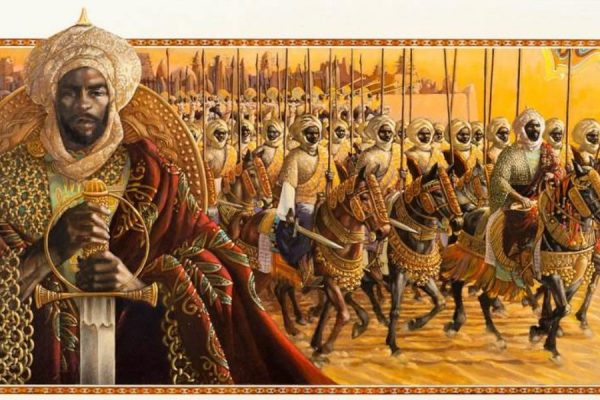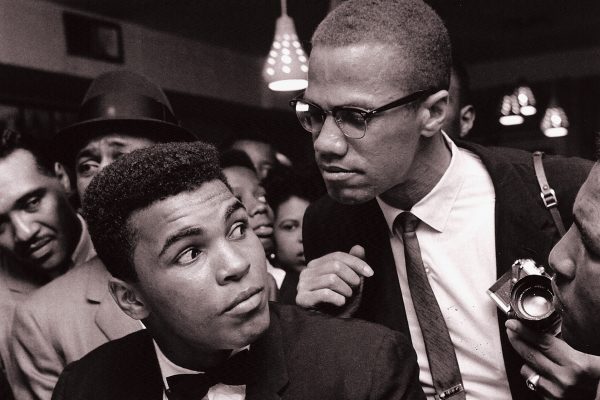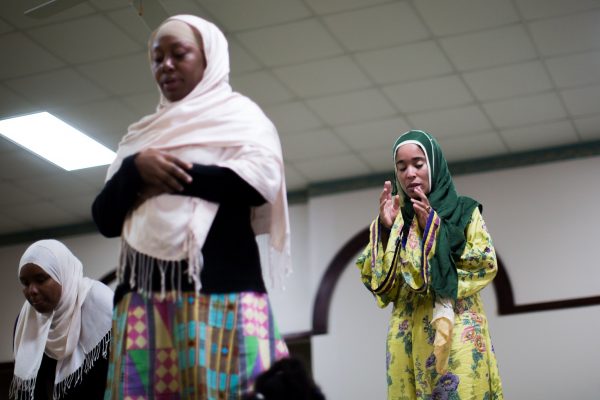The 2017 Pew Research Survey also found that black American-Muslims tend to have a higher level of religious commitment than non-black American Muslims.
The 2017 Pew Research Survey also found that black American-Muslims tend to have a higher level of religious commitment than non-black American Muslims.
The 2017 Pew Research Survey also found that black American-Muslims tend to have a higher level of religious commitment than non-black American Muslims.
Based on a 2017 Pew Research Center survey, a fifth of all American Muslims are black, with 49% of black Muslims being converts to Islam.
This brings new light to how we perceive not only black Americans but black Muslim-Americans as well. Understanding that half of all black Muslims in the United States are converts to the religion of Islam reinterprets just who exactly is being drawn to Islam. With high levels of both systematic and societal racism in the country, these numbers may indicate how many might be drawn to Islam because of the emphasis on racial equality and justice within the religion.
The 2017 Pew Research Survey also saw that 92% of black Muslims say that there is a lot of racial discrimination in the U.S., while only 66% of non-black Muslims said the same. These numbers show a huge discrepancy between perceived injustices and should be a warning for those of us who are choosing to ignore the reality of racial discrimination and hatred faced by many of our black brothers and sisters.
79% of black Muslims also say that the U.S. needs to continue in making changes towards racial equality in the country, while only 66% of non-black Muslims said the same. This again is slightly worrying, showing that those who do not identify as black Muslims are not seeming to be on the same page as those who are black Muslims when it comes to combating racial inequality.
These numbers indicate that there is, in fact, a gap between black Muslims and non-black Muslims when it comes to understanding both the historical and contemporary struggles that black Americans face in the United States. Racial equality, both from a systemic and societal point of view, is far from being achieved, and based on these numbers, much of the Muslim community is unaware or unresponsive to the real threats and inequality faced by black Muslims in the United States.
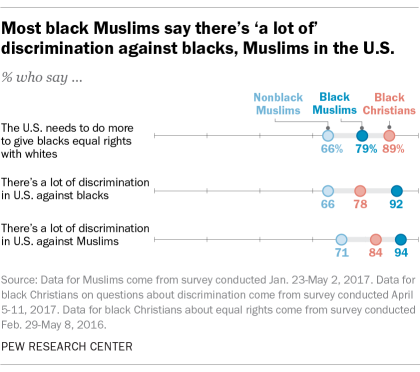
The 2017 Pew Research Survey also found that black American-Muslims tend to have a higher level of religious commitment than non-black American Muslims. According to the survey, 75% of black Muslims say that religion is very important to them, compared to the only 62% of non-black Muslims who said the same.
Along these same lines, 55% of black Muslims said they fully commit to the five daily prayers, while only 39% of non-black Muslims said the same about the required daily prayers. While this does not mean there is a difference in religiosity based on ethnic background, it might point towards the fact that many black American-Muslims are converts and therefore might have a stronger motivation towards a commitment towards the religion in their adult life than many non-black American Muslims who were born into the religion.
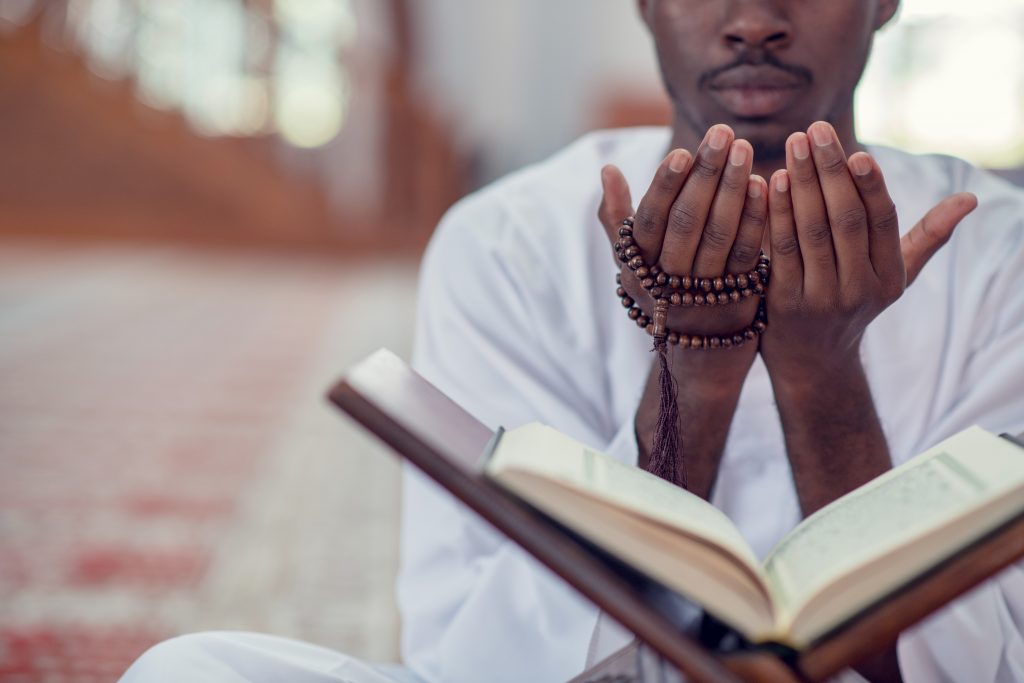
Another interesting connection might be that because black Muslims are, at least statistically, more religiously committed than non-black Muslims, it explains why many are more aware and committed than their non-black Muslim brothers and sisters about fighting against racial inequality, which remains a core lesson in both the Quran and the teaching of the Prophet Mohammad.
While these statistics are but a sample of the population of Muslims in the United States, it does point towards a worrying trend: that many non-black Muslims are unaware or choosing to be unresponsive to racial discrimination faced by many of our black brothers and sisters. If half of all black Muslims are converts to Islam as well, this means that there must be a greater emphasis on supporting inclusivity and community partnerships to make sure all Muslims, regardless of skin tone or ethnic background, are included at the table.
